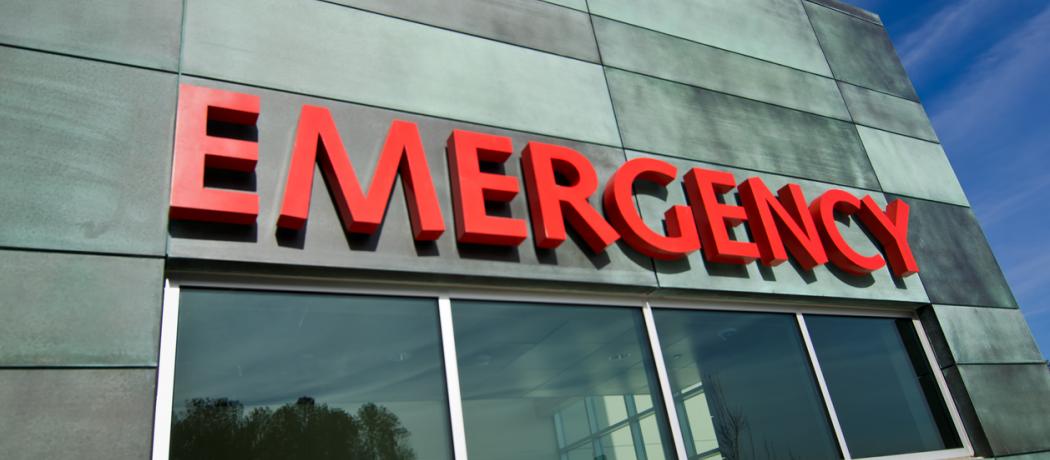Aaron Mishler is an American nurse who served as an Ebola responder in West Africa between 2014 and 2015. At some point, while writing a compelling blog post reflecting on his experience, he wrote a line that has resonated among health care providers over the past year: “There is no emergency in a pandemic.” Mishler’s overarching point was a good one: if health care providers do not use proper PPE in high-risk situations, we risk increased harm to both ourselves and to the populations that we try to serve. Nonetheless, the notion of, “no emergency in a pandemic”—a phrase now being uncritically referenced in peer-reviewed publications, by health care workers on social media, and in the halls of the hospitals I work in—is manifestly inaccurate and potentially erodes our core ethical commitments as physicians.
It is not difficult to demonstrate why. An emergency, most broadly, is a potentially dangerous situation that demands immediate action. A physician is a person whose fundamental duty is to produce health in other persons. As such, a physician must be compelled to some kind of immediate action by a situation that represents potentially catastrophic harm to a patient. The immediate action demanded by an emergency will obviously be different depending on context and includes a physician’s responsibility to keep themselves and their other patients safe. Context does not change the reality that a situation is an emergency.
To put it differently: I assess critically ill patients in a very busy emergency department on a regular basis. Many of them require immediate interventions to reduce their risk of morbidity or mortality. Who am I to say that their situations are not emergent? Would you trust me as a care provider if I actually believed that your crushing chest pain demanded any less urgent action because of the pandemic?
Consider an analogy: firefighters wear protective equipment when entering burning buildings to rescue persons trapped inside. Would you find it compelling to hear firefighters describing the practice of careful self-protection by repeating, “there is no emergency in a fire”? Of course not. Fires are what firefighters are for. And crises of health, whether individual or populational, are what doctors are for.
Is it possible that this is all semantics, that I am harping on what Mishler said instead of what he meant? Maybe. However, if what Mishler meant was good, but the buzz-phrase is bad, then we need to stop parroting it and find a better one. That being said, “Find substantive ways to shoulder the moral burden of providing care to patients with emergencies while balancing the critical importance of PPE so that we may protect ourselves and, in so doing, protect our other patients,” is not nearly as catchy.
We must recognize that our language and moral intuitions inform each other. Doing ethics is a task that involves giving words to our moral intuitions. But it is equally true that the words we repeatedly use have the power to shape our moral intuitions themselves. In other words, if we express good moral intuitions using imprecise and misleading language, we may find our moral intuitions, themselves, misled. Mishler’s blog post addressed care providers who found themselves so compelled by their instinct to care that they were tempted to rush into the rooms of critically ill patients without donning proper PPE. What we undoubtedly want in good care providers is both an abundance of caution with PPE and that same powerful compulsion to care. Ironically, the language of “no emergency in pandemic” has the potential to rob us of that compulsion—which is, after all, at the core of what makes a good physician.
In short, we should not try to tell ourselves that emergencies are not emergencies. Protect ourselves with appropriate PPE? Of course. Respond differently to emergencies based on context? Yes. But we must not try to convince ourselves that our patient’s needs are any less pressing because of COVID. To do so would be intellectually lazy and morally erosive.
Instead, we need to engage creative, practical solutions to deal with the reality that pandemics make dealing with emergencies more difficult. Furthermore, we need to invest in personal practices that allow us to sustain our own passion and compassion during challenging times. There is a great deal more that could, and should, be said about these positive projects. But at present it is enough to simply say that, instead of repeating language that purports to be comforting but ultimately misleads us, the productive way forward is to address these dilemmas directly.
—Quentin IT Genuis, MD CCFP-EM MLitt (St. Andrews)
Competing interests
None declared.
Dr Genuis is an emergency physician at St. Paul’s Hospital and Lionsgate Hospital, and a clinical instructor at the University of British Columbia.
This blog post has been peer reviewed by the BCMJ Editorial Board.


